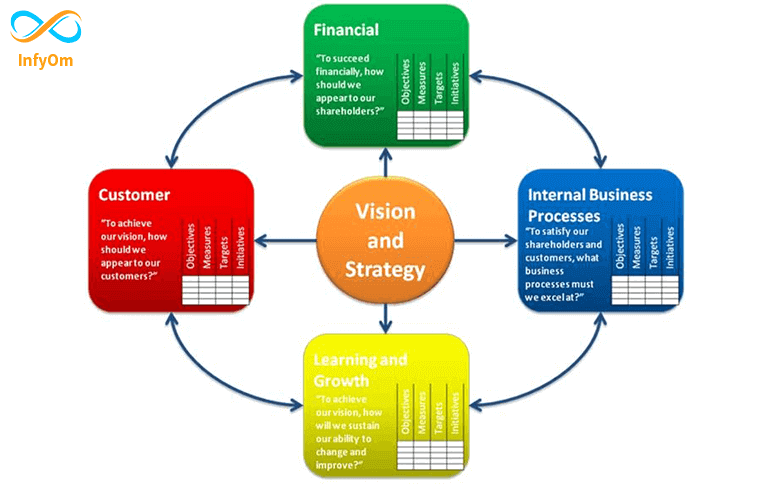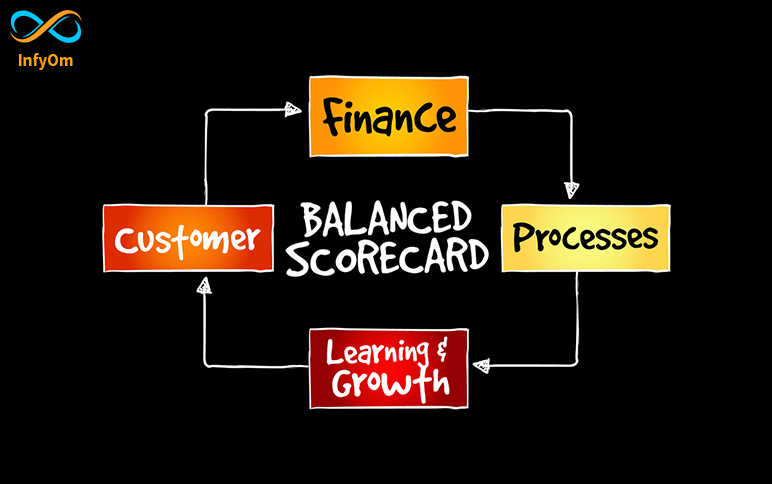Development:
The Balanced Scorecard (BSC) was originally developed by Robert Kaplan of Harvard University and Dr. David Northon as a framework for measuring organizational performance using the more ” BALANCED ” set of performance measures.
Traditionally companies used only short-term financial performance as a measure of success but now non-financial strategic measures are also added in order to focus on long-term success.
The BSC system evolved over the years and is now considered a fully integrated “Strategic Management System”.
What is a Balanced Scorecard (BSC)?
- A Balanced Scorecard is a performance metric used to identify, improve, and control a business’s various internal processes and resulting outcomes.
- Balance Scorecard is a framework to implement and manage strategies.
- The Balanced scorecard is derived from the idea of looking at strategic measures to get a more balanced view of performance. The concept of a Balanced Scorecard evolved beyond the simple use of perspectives, every business can implement it according to the requirements and therefore it is a holistic system for managing strategy.
Why do we need to implement it?
- The key benefit of using a BSC framework is that it gives way to the organization to “Connect the Dots” between various components of strategic planning and management and it means there will be a visible connection between Projects and Programs that people are working on it.
- BSC framework also helps management to meet pre-decided targets.
Perspectives of Balanced Scorecard:
Indeed a balanced scorecard plays a significant role to aid management to keep updated internal processes and the external Business world as well.
The framework Balanced Scorecard is divided into four areas (perspectives) that are critical to business success as given below.

- Financial
- Internal process
- Learning and Growth
- Customer
The BSC suggests that we view the Organization from four Perspectives to develop Objectives, Measures, Targets, and Initiatives (relative to each of these points of view).
To know more details about all four perspectives, read my upcoming weekly Blogs.



